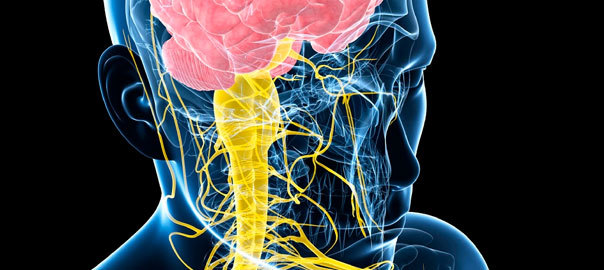The UK Government have recently announced a welcomed increase in funding for Alzheimer’s and Dementia research as the UK hosted the first G8 dementia summit to lead international action on tackling the condition.
We look at a number of recent nutritional related research studies related to Alzheimer’s, Dementia and cognitive functions.
December 2013 – Omega-3 dietary supplements pass the blood-brain barrier: New research from Karolinska Institutet (Stockholm) shows that omega-3 fatty acids in dietary supplements can cross the blood brain barrier in people with Alzheimer’s disease, affecting known markers for both the disease itself and inflammation. The findings are presented in the Journal of Internal Medicine, and strengthen the evidence that omega-3 may benefit certain forms of this seriously debilitating disease.

“Earlier population studies indicate that omega-3 can protect against Alzheimer’s disease, which makes it interesting to study the effects of dietary supplements containing this group of fatty acids in patients who have already developed the disease,” says the study’s lead author Dr Yvonne Freund-Levi.
RELEVANT LINKS:
Karolinska Institutet: Omega-3 dietary supplements pass the blood-brain barrier
January 2014 – Vitamin E ‘beneficial’ in dementia: “A daily dose of vitamin E could help people with dementia, research suggests. A study in the journal JAMA (The Journal of the American Medical Association) found people with mild to moderate Alzheimer’s disease on high doses of vitamin E had a slower rate of decline than those given a dummy pill.
They were able to carry out everyday tasks for longer and needed less help from carers, say US researchers. The Alzheimer’s Society said the dosage was very high and might not be safe.”
(As reported by the BBC)
The NHS ‘Behind the Headlines’ carried out a review of the research which makes interesting reading, in particular the ‘conclusion’ section toward the end. The dosage of Vitamin E supplementation in the trial was indeed high so take heed of the NHS comment:
“The study found a small though statistically significant difference in the decline of ability to carry out daily tasks in people taking vitamin E compared to placebo. There was also a corresponding small difference in the time caregivers said they spent helping patients.
High doses of vitamin E can be harmful and can interact with other medications in ways that could be harmful. It is advisable to talk to your doctor before taking supplements; especially if you are planning to take a high dosage.”
RELEVANT LINKS:
NHS Choices: Could vitamin E slow dementia?
BBC News: Vitamin E ‘beneficial’ in dementia
January 2014 – Vitamin D Levels Linked to Parkinson’s Symptoms; Better thinking, mood associated with higher levels, study finds: “Higher vitamin D levels are associated with better thinking and mood in people with Parkinson’s disease, a new study suggests (the Oregon Health and Sciences University).
The finding may lead to new ways to delay or prevent the onset of thinking problems and depression in people with the progressive neurodegenerative disease, the researchers said.
Their analysis of nearly 300 Parkinson’s disease patients revealed that higher blood levels of vitamin D — the “sunshine vitamin” — were associated with less severe physical symptoms, better thinking abilities and lower risk of depression.
This link was especially strong in patients without dementia, according to the study in the current issue of the Journal of Parkinson’s Disease.”
(HealthDay News)
RELEVANT LINKS:
Medline Plus: Vitamin D Levels Linked to Parkinson’s Symptoms
January 2014 – Omega-3 intake inversely linked to signs of brain aging: “Older women with higher levels of omega-3 fatty acids in their blood had slightly less brain shrinkage than women with low fatty acid levels in a new study. The results may suggest that omega-3s protect the brain from the loss of volume that happens with normal aging and is seen more severely in people with dementia, the researchers say.
“The brain gets smaller during the normal aging process – about 0.5 percent per year after age 70, but dementia is associated with an accelerated and localized process of brain shrinkage,” said James Pottala, who led the study.”
(Reuters Health)
Alzheimer’s Research UK provided a commentary on the research (link to the full article below) and Dr Laura Phipps of Alzheimer’s Research UK, the UK’s leading dementia research charity, said:
“There has been mixed evidence as to the benefits of omega-3 fish oils on the brain and whether they may protect against memory decline and dementia. This study suggests that higher levels of omega-3 fatty acids in blood are linked to larger brain size but the possible reasons for this association need further investigation. We know that the brain gets smaller in people with dementia, but it is unclear from the study what effect larger brain size would have on memory and thinking in the volunteers or their long-term risk of developing dementia.”
RELEVANT LINKS:
Reuters News: Omega-3 intake inversely linked to signs of brain aging
Alzheimer’s Research UK: Omega-3 levels in blood linked to larger brain size in older women
If you have any questions regarding this article, any of the health topics raised, or any other health matters please do contact me (Amanda) by phone or email at any time.
Amanda Williams
Cytoplan
amanda@cytoplan.co.uk
01684 310099
ADDITIONAL LINKS:
Alzheimer’s Research UK the UK’s leading dementia research charity
Cytoplan Blog: Can B-Vitamins Help Deter Alzheimer’s & Dementia?
Last updated on 7th November 2017 by cytoffice

